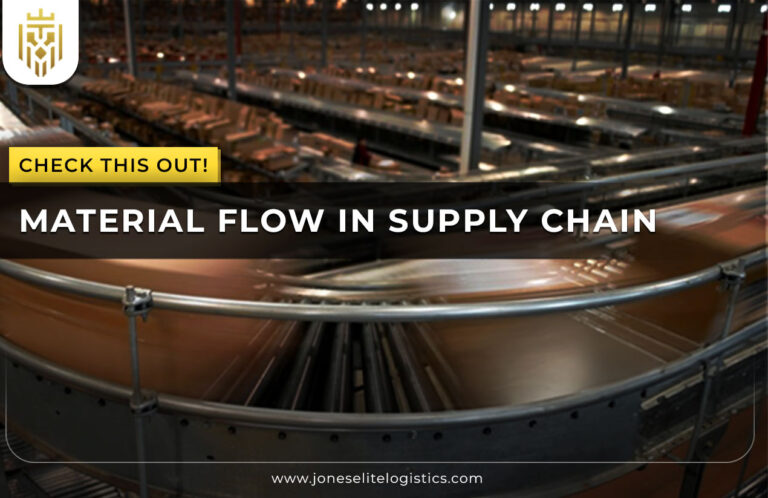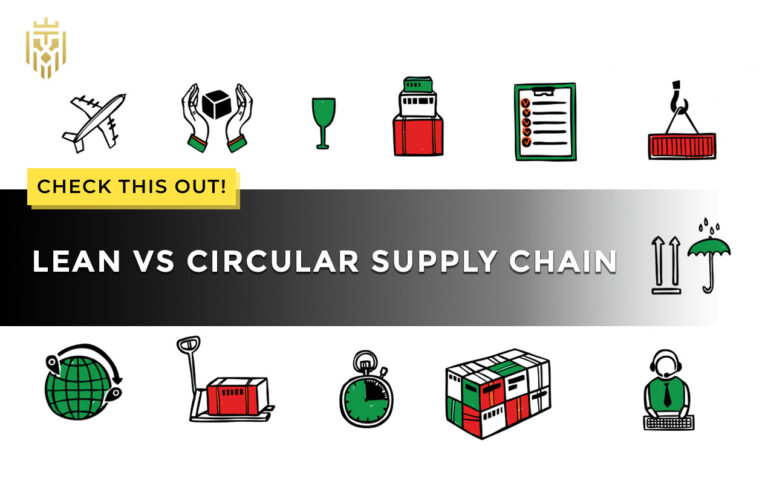What is a private warehouse?
The private warehouse is a storage facility that is owned and run by a specific firm for its use. In this case, while public warehouses are used by several parties, private warehouses are designated to store stocks and goods of a certain company only. This type of warehousing gives full control of warehouse operations, security, and inventory to the company and therefore it is preferred for large companies for storage or companies with specific logistic needs. In some cases, a cooperative warehouse can also be used as a more collaborative warehousing option for multiple businesses that wish to share space and resources.

Types Of Private Warehouse:
Warehouses can be categorized as private in various forms that are provided to work in various ways, according to the storage and operations. Some of these are distribution centres, fulfilment centres, automated warehousing, bonded warehousing, and cold storage warehousing, and hazmat warehouses for handling hazardous materials.
Distribution Centers:
Distribution centres are a type of specialized private warehouse or depot responsible for taking delivery, storage, and dispatch of goods. They act as distributing centres of the products to the retailers, wholesalers, or even the last consumer. These centres have integrated sophisticated logistics systems of order; thus, the overall supply chain is enhanced due to efficient order delivery, ensuring high levels of operational efficiency.
Fulfillment Centers:
A Fulfilment centre can be defined as a privately owned warehouse specially used to pack and ship products mainly from internet-based firms. They hold inventory, select and pack products based on customers’ orders, and supply them to the consumers. These centres focus on fast service and getting products to customers as quickly as possible – the key tasks for companies operating in the context of online retail. Some smart warehouses also use advanced technology to enhance this process. For businesses that need a public warehouse solution, they can opt for a shared warehouse where multiple businesses store goods and benefit from reduced costs.
Automated Warehouses:
Automated warehouses incorporate technology like; robotic systems, conveyors, and software to handle storage as well as material handling. Such facilities help increase operational efficiency, bring down employees’ costs, and cut the number of mistakes made. It is suitable for organizations with voluminous, recurrent tasks since it enables faster, perfect-order processing, due to which smart warehouse technology is often integrated here.

Bonded Warehouses:
Bonded Warehouses ensure the imported merchandise can be stored in certain facilities without having to pay customs before storing their goods. These warehouses are more important to businesses that handle imports or exports because they enable those dealing in imported goods to delay tax payments until the goods arrive in the market and are sold. This setup oversees the inflow and outflow of the cash as well as the receipt and use of the products in stock.
Cold Storage Warehouse:
Cold storage warehouses are specialized kind of warehouses that provide the necessary conditions for the proper storing of perishable products and materials. Such warehouses are used in industries such as food and pharmaceuticals because the nature of products requires the preservation of their temperature. While a climate controlled warehouse offers temperature control for non-perishable items that need to be stored in specific conditions, cold storage warehouses help maintain goods in fresh and safe condition for consumption or usage for an extensive time.
Advantages of Private Warehouse:
There are significant advantages of operating private warehouses to companies and can be considered as a rather worthy investment for any company that requires both large and specific warehouse space for their storage needs.
Improved Security and Inventory Management:
Private warehouses have better security as compared to public warehousing, which minimizes the cases of theft and destruction. There are possibilities to use specific inventory management systems for performing the control and tracking of inventory in the companies. Such a level of supervision is useful in ensuring that the quality of developed products and their supply is keenly monitored which is important in satisfying customers.
Increased Flexibility and Adaptability:
Since private warehouses are not restricted under the bill of service, it is easier to change how the facilities are managed to suit a certain firm. A Public warehouse can design its warehouse operations plan to achieve maximum operational efficiency and makes it easier to adjust to fluctuating market conditions or different seasons. For firms considering alternative solutions, a shared warehouse might be a more cost-effective option, allowing multiple businesses to use the same space and share expenses.

Long Term Cost Savings:
Huge capital is needed in the initial stages to set up a private warehouse but in the long run, it saves a lot of money. This saves on the amount that would have been used to pay for the rental of a public warehouse, and doing one’s operations in a certain manner can prove to be effective at cutting down costs in the long run. Mainly, this investment increases in economic value as the business expands and increases in size.
Enhanced Brand Image and Customer Perception:
Managing a private warehouse may also help a firm’s brand image if that image relies upon a tightly managed supply chain. It is associated with reliability and professionalism that may in turn uplift customer attitude towards the company. Order satisfaction from a private warehouse also has the added advantage of improving customer service and thus their loyalty.
Challenges of Private Warehouse:
However, there are some drawbacks to a private warehouse management process including a higher capital investment, continuous cost of preserving the warehouse facility, lack of quality space from time to time, and very little flexibility is also observed.
High Initial Investments:
Entry to warehouse marketing entails a major commitment of capital in land, building, stock, machinery and equipment infrastructure, and technology. This financial commitment is a problem that may be felt by small and medium businesses which means that companies need to plan their investments in innovation carefully and may need long-term funding.
Maintenance Cost:
Costs directly associated with the accumulated owned warehouse include repairing, updating, and refurbishing as well as the cost of running the warehouse such as electricity and employees’ remuneration. Many of these can accumulate and may call for a separate fund and time to be spent toward the makeup or modernizing of the facility to make it maximum.
Capacity Utilization:
The last task is to maintain a high level of capacity utilization and related warehouse operations, making it quite difficult in the case of private warehouse management. Where there is low usage of space and facilities, resources remain idle, and on the other hand when it is overused, the organization feels the pressure. It is vital to maintain balances within the inventory position concerning the demand for specific goods and services.

Limited Flexibility:
Public warehouses could be convenient while private warehouses might be slightly rigid in how they change the amount of storage space available. However, after a private warehouse is erected it takes time and capital to expand or even downsize. This has the effect of inflexibility which compromises the possibility of being able to meet changes in market trends or unforeseeable storage demand.
Role of Private Warehouse in Supply Chain:
Thus, private warehouses have an essential function for supply chains because they offer dedicated storage for many materials and proper inventory management. These strategies help manage the workflow of logistics, minimize the length of time it takes, and increase the levels of order fulfilment achieved. Due to flexibility and the possibility of providing an individual approach to the management of the storage, private warehouses enhance the quality of products that are delivered to the client and benefit the supply chain
Why Choosing a Private Warehouse in India is the Best Option:
Selecting a private warehouse provider in India has its benefits such as the affordability of a warehouse in India minimizes the control of a warehouse far away from the business itself, and the security of stocks. Companies like Jones Elite Logistics provide top-tier private warehouse management solutions, helping businesses enhance their supply chain with superior control, efficiency, and flexibility compared to public warehousing options. Their experience in supply chain management in the Indian market then leads to better stock control, less service cost, and greater flexibility to meet market needs making it suitable for organizations requiring a proper warehousing option.
FAQs
1) What is a private warehouse?
A private warehouse is generally owned and managed by a particular company to be used by that company alone, thus giving the company supreme control over its stock, protection, and handling.
2) What are the advantages of a private warehouse?
For private warehouses, those benefits are better-secured accommodation of stocks, the opportunity to control the stock inventory according to the requirements of the company, better operational control, long-term cost efficiencies, and a better image of the brand.
3) What are the challenges of private warehouses?
Disadvantages include High capital investments and costs of maintenance, keeping an optimal balance between storage capacity and demands, and flexibility in the scale of storage space.









